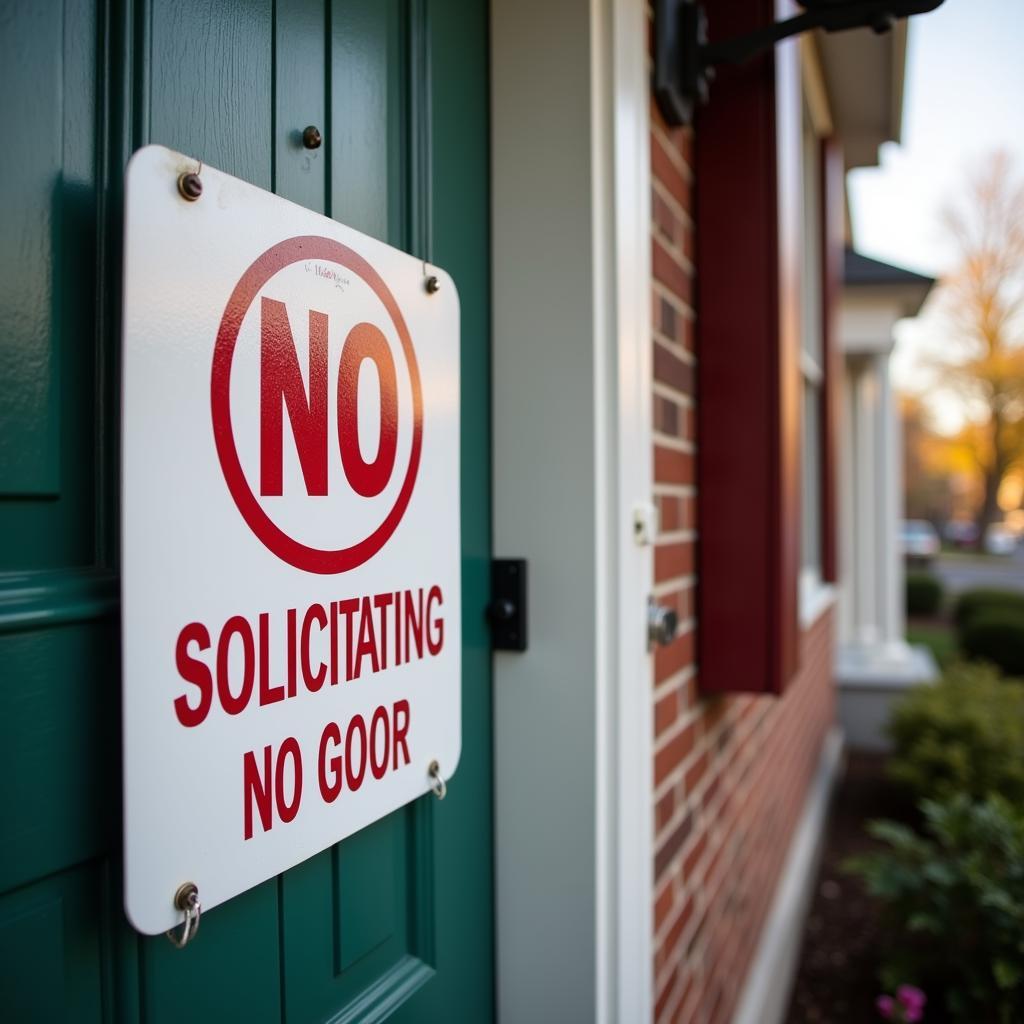The landmark case of Watchtower Bible and Tract Society v. Village of Stratton stands as a pivotal moment in the ongoing dialogue between religious freedom and local governance. This case, heard by the Supreme Court of the United States in 2002, revolved around the constitutionality of a local ordinance that required individuals engaged in door-to-door advocacy or solicitation to obtain a permit from the village.
The Watchtower Bible and Tract Society, the publishing arm of Jehovah’s Witnesses, challenged the ordinance, arguing that it infringed upon their First Amendment rights to free speech and the free exercise of religion. The heart of their argument rested on the fact that door-to-door evangelism, or the spreading of their religious message, is a fundamental practice within their faith.
The Village of Stratton, on the other hand, defended the ordinance on the grounds of public safety and fraud prevention. They argued that requiring permits allowed them to track individuals going door-to-door and provided residents with a degree of security and peace of mind.
A Clash of Rights: Balancing Safety and Freedom
The Supreme Court, in a 8-1 decision, ruled in favor of the Watchtower Bible and Tract Society, striking down the ordinance as unconstitutional. The Court held that the ordinance was overly broad and placed a substantial burden on the free exercise of religion and free speech.
Writing for the majority, Justice Stevens emphasized the historical significance of door-to-door advocacy and religious outreach in American society, citing its role in various social and political movements. He noted that such activities fell well within the ambit of the First Amendment’s protection.
The Impact of Watchtower v. Stratton
The Watchtower v. Stratton decision has had a lasting impact on the legal landscape concerning religious freedom and free speech. It serves as a crucial precedent protecting the rights of individuals and groups to engage in door-to-door advocacy, solicitation, and religious outreach without undue government restrictions.
“The right to share one’s faith, to engage in religious dialogue, is fundamental to a free society,” says Dr. Emily Carter, a constitutional law scholar at the University of California, Berkeley. “The Watchtower case reminds us that these rights are not absolute and must be carefully balanced against legitimate government interests. However, the court made it clear that suppressing free speech and religious exercise in the name of safety requires a compelling justification, one that the Village of Stratton failed to provide.”
Navigating the Fine Line: Protecting Freedom While Addressing Concerns
While the Watchtower v. Stratton case affirmed the importance of religious freedom and free speech, it also acknowledged the need to address legitimate concerns about public safety and fraud prevention. The court suggested that less restrictive alternatives, such as “No Solicitation” signs or registries for commercial solicitors, could be implemented to address those concerns without infringing on constitutional rights.
 A "No Solicitation" Sign on a Residential Property
A "No Solicitation" Sign on a Residential Property
The Watchtower v. Stratton case serves as a powerful reminder of the delicate balance that must be maintained between protecting individual liberties and ensuring public safety. It underscores the importance of carefully scrutinizing government regulations that could potentially infringe on fundamental rights and seeking alternative solutions that uphold the values enshrined in the Constitution.
FAQs about Watchtower Bible and Tract Society v Village of Stratton
1. What was the main issue in the Watchtower v. Stratton case?
The main issue was whether a village ordinance requiring permits for door-to-door advocacy and solicitation violated the First Amendment rights to free speech and free exercise of religion.
2. How did the Supreme Court rule in the case?
The Court ruled in favor of the Watchtower Bible and Tract Society, striking down the ordinance as unconstitutional.
3. Why did the Court find the ordinance unconstitutional?
The Court found the ordinance overly broad and burdensome on the exercise of free speech and religion.
4. What is the significance of the Watchtower v. Stratton case?
The case reinforced the protection of door-to-door advocacy, solicitation, and religious outreach under the First Amendment.
5. Did the Court dismiss concerns about public safety and fraud?
The Court acknowledged these concerns but suggested less restrictive alternatives to address them.
Need Help? Contact Us:
If you have any questions or need assistance regarding issues related to freedom of speech, religious freedom, or other legal matters, please don’t hesitate to contact us.
Phone Number: 02043854663
Email: [email protected]
Address: Khu 34, Bac Giang, 260000, Vietnam
We have a dedicated team available 24/7 to provide support and guidance.